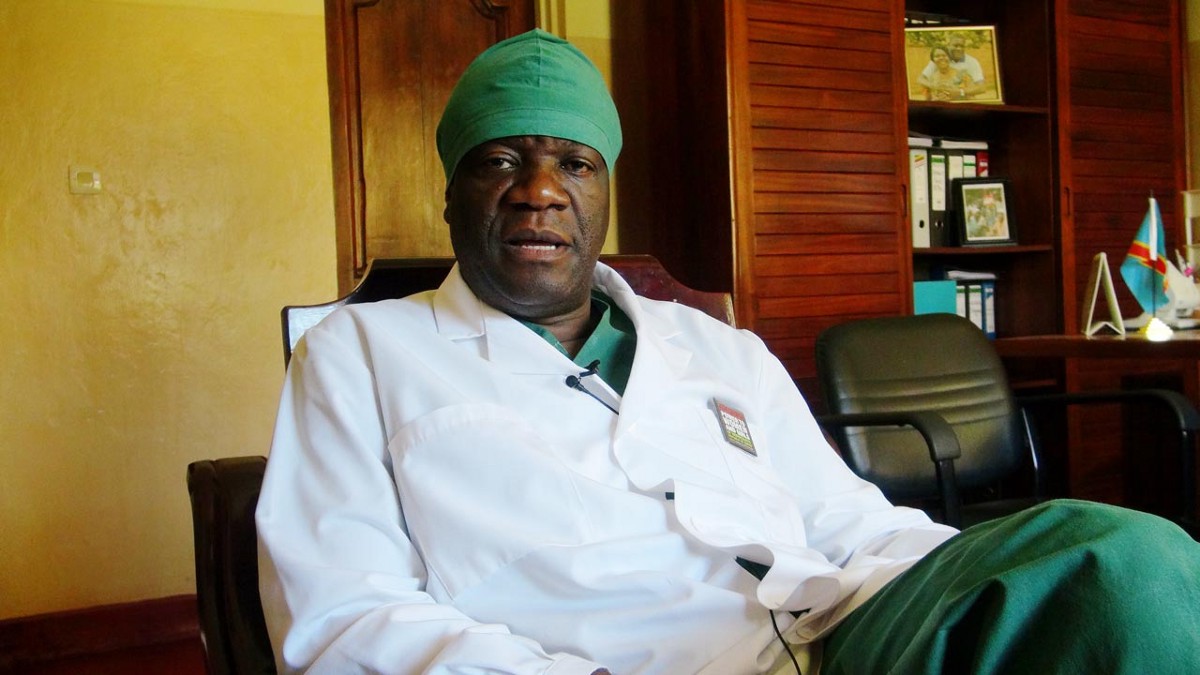
Last Word: Reflecting God’s Character
Daniel Bourdanné
Dr Denis Mukwege is a medical doctor who treats rape victims. He is a well-respected gynaecologist, who could live in the West. But he has chosen to work in one of the most challenging parts of the Democratic Republic of Congo. In a region torn apart by war and years of horrific sexual violence, this man takes care of thousands of women, many of whom have been victims of brutal gang rapes. His medical expertise is saving lives and he is a bold advocate of gender equality in the country. This brother from DR Congo is a graduate of the IFES student movement in Burundi, where he did part of his medical studies. He was awarded the Sakharov prize by the European Union in 2013 and was shortlisted for a Nobel Prize in 2016. He is a model to me of Christian engagement in society. He selflessly brings the character of God to these broken people.
We too are called to impact our world for the glory of Christ. In the face of opposition and the devastating effects of sin, we may feel helpless. What can we do? On one hand, it is true, we cannot change the world around us. But God can. And he is calling us to be his agents of transformation. We need to be bold and intentional in fulfilling that mandate because God wants to work through us. He calls us to be salt and light in our broken societies.
“For we are God’s handiwork, created in Christ Jesus to do good works, which God prepared in advance for us to do.” Ephesians 2:10, NIV
In a ministry like IFES, we are communities of God’s people and he wants to work through us to reduce some of the consequences of sin in this world. I want to encourage us to view ourselves as God’s instruments of transformation — in the university, in families, in society, in the church.
We should remember the big picture of God’s creation. From the beginning, we were mandated by him to impact his creation. Because of our sin, the implementation of this becomes more difficult. But let us be refreshed by this biblical mandate and work through the power of the Holy Spirit to make a good and positive impact in our broken world. God made us in his image. He wants his glory to be known and praised. He has given an amazing gift of grace to change this fractured world.
And so, we seek to impact society, but not solely to see social transformation, although that is certainly one aspect. Instead we campaign for justice because we want to see more of God’s justice reflected in society. We speak out for people’s rights because we want more of God’s righteous character reflected in our communities. When brokenness leads to a level of poverty that reduces the dignity of those made in God’s image, we are deeply touched and we are challenged to fight to improve people’s condition. We do not fight for wealth, but for the dignity of the people created in God’s image and for the honour of the God we worship. There is a spiritual motivation to our engagement and so we do all we can to reflect more of God’s character.
To do this, we must resist getting stuck in our own bubbles and ghettos. We need to take bold and courageous steps to go into the world and explore ways to enable God’s character to be reflected at all costs — in public spaces like politics, on our university campus, in our families, in war-ravaged communities. These contexts can, by their nature, be challenging and dangerous, but we can be encouraged and empowered by our great God who tells us: do not be afraid. It is his love and power we are called to bring to the broken people around us.

Daniel Bourdanné, June 2017
